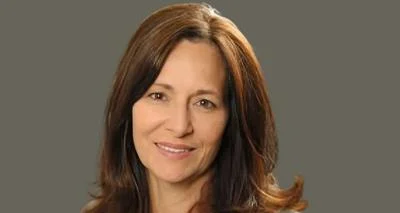Children's Hospital of Illinois Bloomington issued the following announcement on May. 12.
There have been plenty of myths surrounding the safety of the COVID-19 vaccine, including the issue of whether it causes infertility among younger women. Much of the concern is fueled by misinformation shared on social media, which, in turn, is causing vaccine hesitancy for some.
According to Dr. Jamie Plett, OB/GYN, OSF HealthCare, the myths are based on the worry that messenger RNA in the vaccine could cause infertility by accidently attacking a protein in the placenta called syncytin-1, which has a similar structure to the coronavirus spike protein.
“There was concern at first if that protein could possibly be causing an immune response from a lady who’s gotten the vaccine to fight against that placenta," says Dr. Plett. "That’s where that concern came and where it started. That’s been proven to not be the case and to not be true because we have not seen miscarriage rates go up; we have not seen infertility rates go up either since COVID has started or the vaccine has come into production.”
In fact, there is added importance for pregnant women to get the vaccine.
According to the Centers for Disease Control and Prevention (CDC), pregnant women are 5.4 times more likely to be hospitalized with COVID, 1.5 times more likely to be admitted to the intensive care unit, and 1.7 times more likely to be placed on a ventilator.
“Although there has been no difference in death rate of people who are pregnant and get COVID-19, they can obviously have very serious consequences so we’d like to avoid that if we can," says Dr. Plett. "At this point, the vaccine benefits definitely outweigh the risks for anyone who’s pregnant.”
There’s also a timing issue when it comes to getting the vaccine for women who are receiving fertility treatments.
“The recommendation with fertility treatments and getting the actual vaccine is either delay the vaccine or to possibly delay fertility treatments for another month, simply because we don’t want some of the side effects of the vaccine – some people get achiness, maybe a low grade fever – to be confused with signs that something could be happening in the fertility treatment that could cause problems," says Dr. Plett. "It’s not that the vaccine would cause an issue with the fertility treatments, but maybe some of the side effects could mask some of the side effects from the fertility treatments.”
It’s understandable that patients have questions about the vaccine, especially with so much information swirling around from many different outlets. As with any health issue, the best advice is to have the conversation with your physician as soon as possible.
“If you have questions I always tell my patients, ‘that’s why I’m here,’ to answer those questions," says Dr. Plett. "If you have an upcoming appointment with your doctor and you hear things, write them down and bring them in. Most physicians are more than happy to go behind those myths, to explain to you the science behind it, to tell you what you want to know or need to know in order to make an informed decision.”
Currently, anyone 16 and older is eligible to receive the COVID-19 vaccine, and can now self-schedule a COVID-19 vaccination at osfhealthcare.org/vaccine.
For more information on COVID-related resources, visit OSF HealthCare.
Original source can be found here.

Source: Children's Hospital of Illinois Bloomington






 Alerts Sign-up
Alerts Sign-up